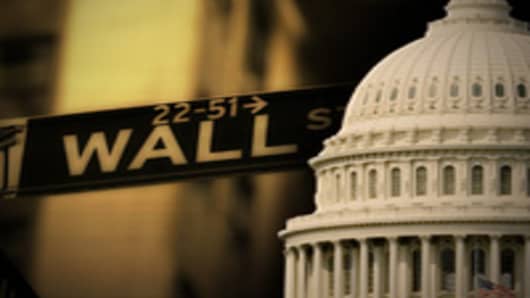Senate negotiators are expected to offer changes today to the financial reform bill that would soften the Volcker rule. On Capitol Hill there is widespread speculation that the Senate negotiators will propose language that would allow banks to invest a small amount of their capital in their internal hedge funds or proprietary trading desks.
Exactly how much capital the banks would be able to commit to their hedge funds and proprietary trading under such a change is not clear. Early reports indicate there may be support on Capitol Hill to allow banks to put 2% of their capital into hedge funds they sponsor or prop trading. Bank lobbyists have been pushing for a higher number, perhaps up to 5% — a level which would allow many banks to escape the Volcker rule altogether.
But depending on which percentage the Capitol Hill negotiators agree to, lawmakers may unintentionally be allowing the banks that needed the biggest bailouts during the financial crisis to escape the Volcker Rule. On the other hand, banks that fared better may be forced to spin off parts of their prop trading and hedge fund businesses.
The Volcker rule, suggested by former Federal Reserve chairman Paul Volcker, would ban banks from trading with their own capital or sponsoring hedge funds. The goal is to prevent banks from engaging in risky or complex trading that could undermine their financial health and require a new round of bailouts.



